Net Zero Hero: Nitakuwa Barrett Orsak
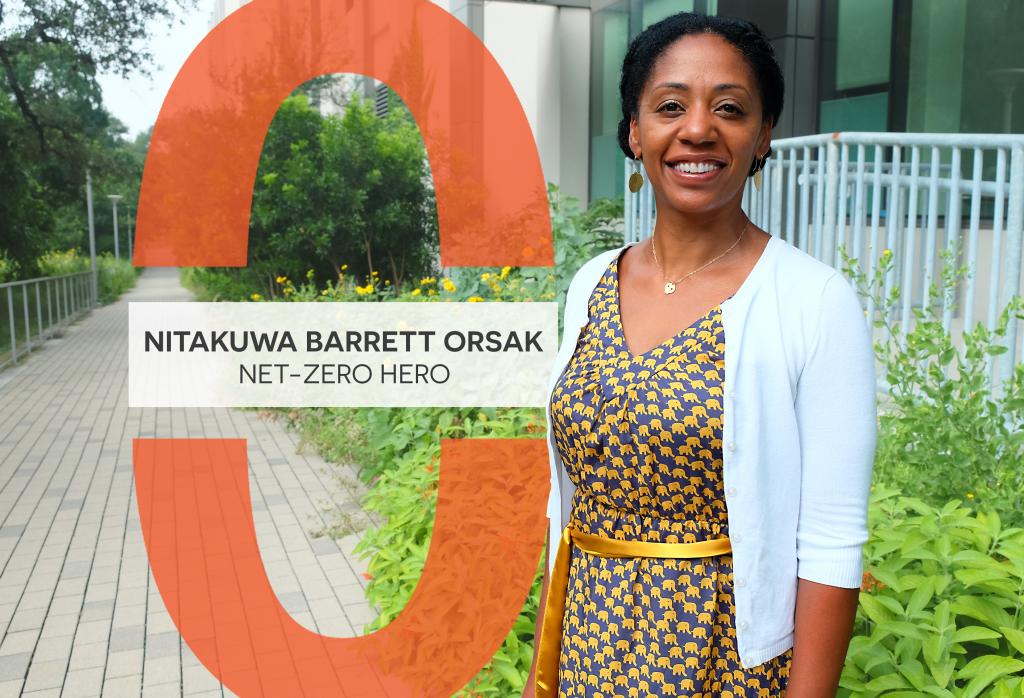
I’m helping to make Austin Net-Zero by amplifying community voices, needs, and solutions that address the social determinants of health*
Meet Nitakuwa Barrett Orsak, our newest Net-Zero Hero. For some, the relationship between health and climate change might not be so obvious, but for Nitakuwa, the connections can’t be unseen. Nitakuwa is a trained naturalist who transitioned from a career in the outdoors to become a registered nurse and public health practitioner. Now, in her role as a community health program manager at UT Austin’s Dell Medical School, Nitakuwa works daily to shine a light on the connections between climate and health while working on projects to help Austinites live their fullest lives.
We met with Nitakuwa at the Dell Medical School campus to talk about her travels as a naturalist, her partnerships in the community, and the advice she has for others.
*The social determinants of health are environmental conditions that impact individual and community health.
What inspired you to take action?
I’ve always been passionate about the environment. In my first career, I was a naturalist, working in Hawaii, Alaska, Mexico, and the Pacific Northwest. I loved connecting people to nature. I now work at Community-Driven Initiatives at the University of Texas at Austin Dell Medical School and partner with community members and organizations to improve health. The World Health Organization defines health as “a state of complete physical, mental, and social well-being and not merely the absence of disease or infirmity.” Health is so much more than what happens in a clinic or hospital, and our environment is intrinsically tied to our health outcomes.
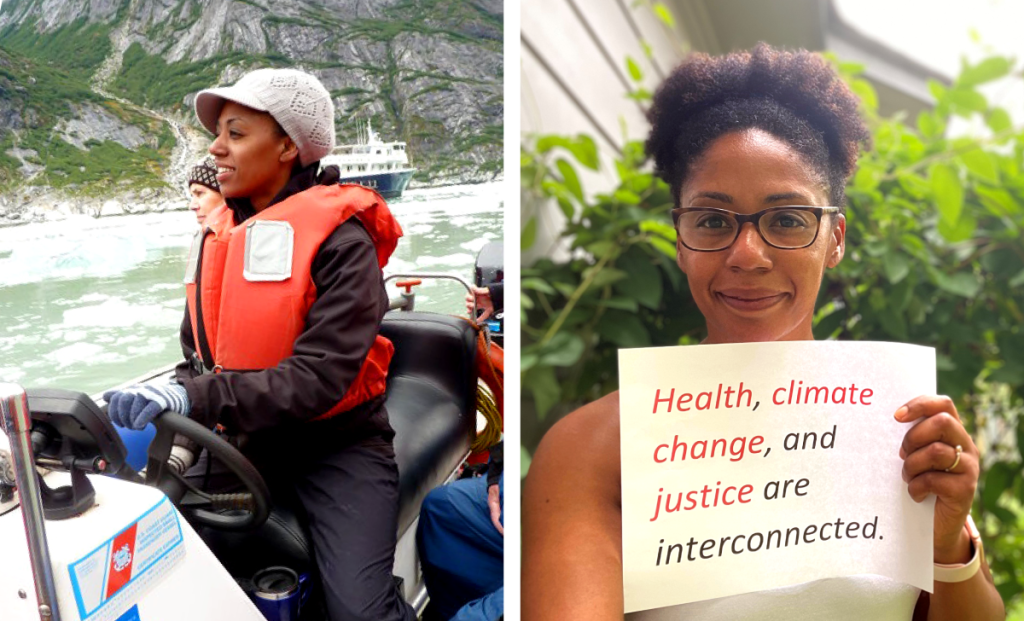
Left: Nitakuwa drives a boat in Alaska; Right: Nitakuwa holds up a sign about the interconnections of health, climate change, and justice.
How did you do it?
Central Texas has a strong community of skilled, knowledgeable, and action-oriented people. My role in the Department of Population Health at Dell Medical School allows me to intentionally seek partnerships with community members. This means building trust, creating meaningful relationships, and establishing shared leadership in our projects and initiatives. There are so many people and organizations working towards building a healthier environment.
I am currently working on the Austin/Travis County food planning effort. I think many people understand the importance of healthy food. However, there are so many aspects of the food system that have an impact on health. Food production can be beneficial or harmful to the Earth and the people who grow and harvest it. Food distribution can impact climate when produce and other goods are shipped hundreds or even thousands of miles. There are many solutions to these issues, and I really enjoy working with people who are passionate about doing the work. There are many ways for community members to join in this effort. I encourage those reading to explore opportunities to get involved.
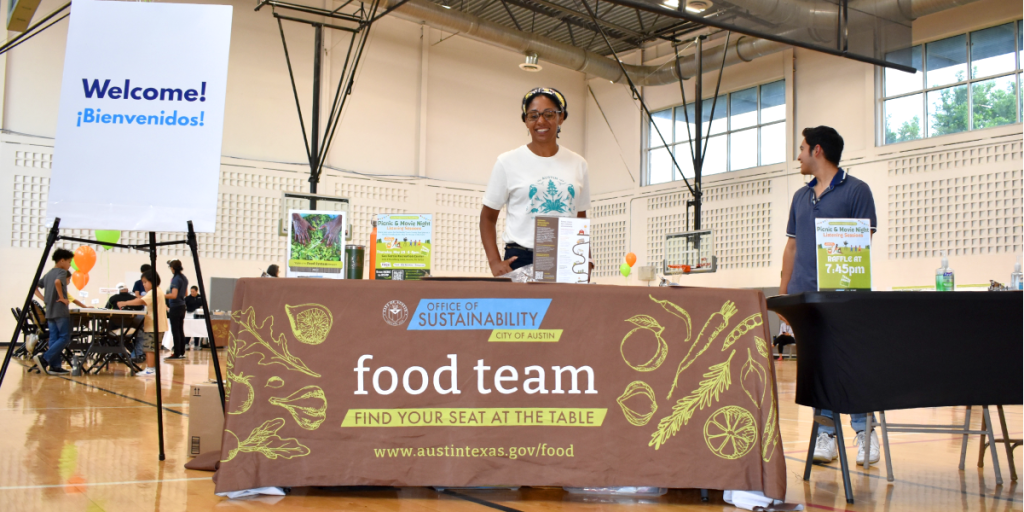
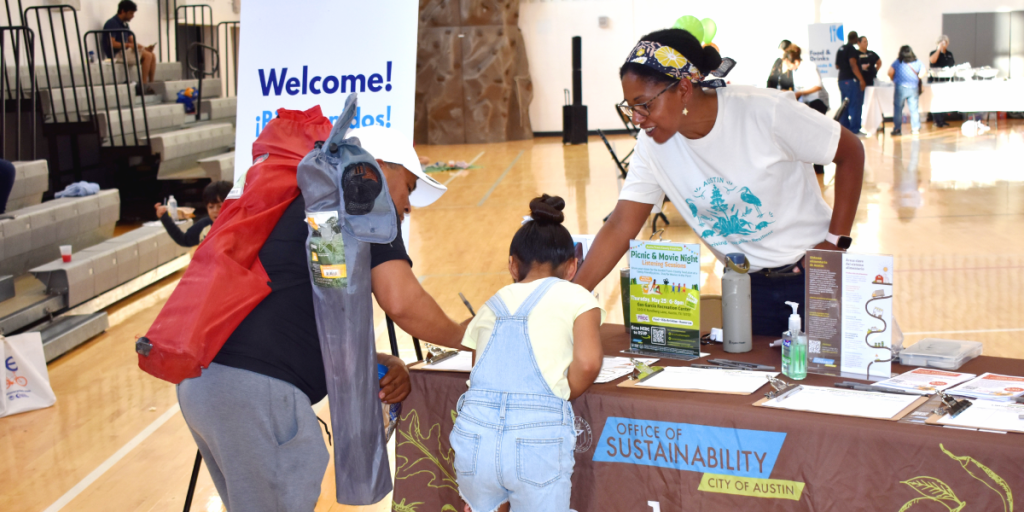
Nitakuwa tables at community events for the Austin/Travis County food planning effort.
I also work with the tenants’ rights organization BASTA on a series of healthy housing topics. While there is an incredible amount of growth and construction in Austin, there are many older housing units that are not energy efficient. This increases the use of fossil fuels to cool and heat our homes, and often the root causes of energy inefficiency can also lead to unhealthy conditions inside the home. Older housing units may have inadequate seals on windows and doors, cracks in walls and floors, and these structural issues create opportunities for pests inside the home. These issues can also lead to increased moisture which creates conditions for mold to grow. Indoor mold exposure and pests can trigger many health issues.
I’ve also worked with the Alliance for African American Health in Central Texas on an intergenerational gardening project that built gardens in the yards of seniors’ homes and built relationships among youth, adults, and seniors. The project improved access to healthy food for everyone involved, provided the opportunity for youth to learn about financial literacy, and allowed all participants to learn about food justice.
As you can see, there are many connections between the environment and health.
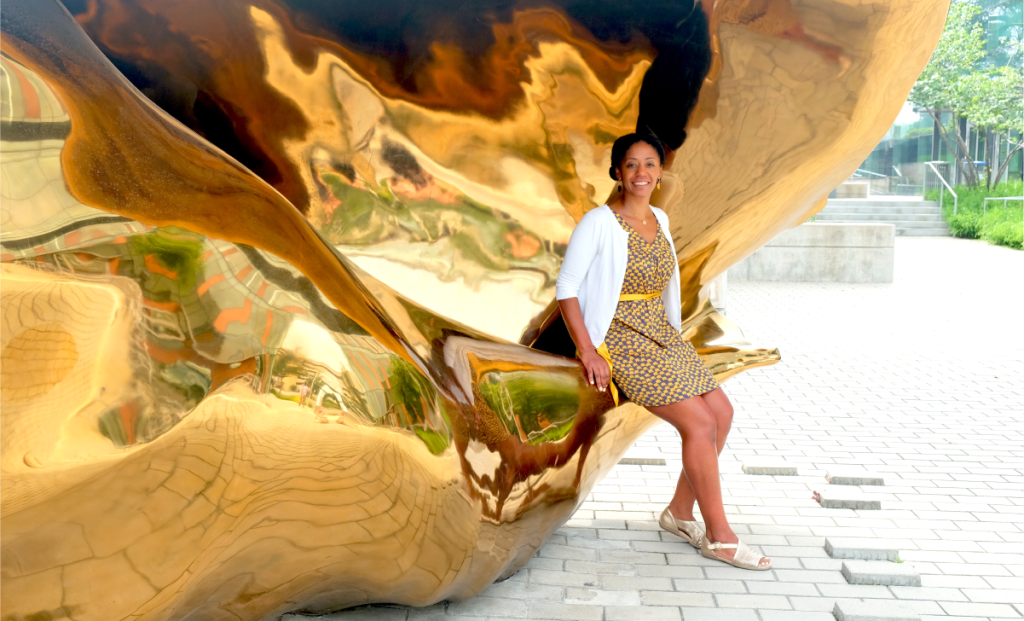
Nitakuwa sits in Marc Quinn’s “Spiral of the Galaxy” conch sculpture outside of Dell Medical School’s Health Learning Building.
What’s been most rewarding about getting involved in this way?
Hope. We live in challenging times, and it can be hard to remain optimistic and hopeful that lasting change can be made. I am constantly reminded, as I work on various projects and initiatives, that people want to do the work, are doing the work, and that change is indeed happening.
What’s been the toughest part?
Change can feel so slow… and making large-scale change takes time. The climate crisis and health shouldn’t be controversial issues, but they are. Environmental and health systems are complex, and they are intertwined with commercial, financial, and political systems. So it can get frustrating. Frequently.
One experience you’ve yet to mention in our interview is serving on the board at Travis Audubon. The Office of Sustainability is a proud partner of the Lights Out Initiative, which supports migratory birds as they travel through Texas. What inspires you about birding, and what actions can Austinites take to support birds in our area?
The great thing about birding is that it is a simple and rewarding activity. My friend Nicole Netherton, the Executive Director of Travis Audubon, sums it up beautifully, “Do you like birds? Great, you are a birder.” Birding soared in popularity during the pandemic. This is great for many reasons, particularly because when people care about something, they are more likely to take measures to protect it.
There is a lot we can do for birds in Austin, and one simple thing is the Lights Out, Austin! initiative. Many species of birds migrate through our area during the Spring and Fall, and most travel at night. Light pollution can disrupt birds’ navigation, and we can help protect migrating species by turning off unnecessary interior and exterior lights. Turning off lights also reduces energy consumption, supporting net-zero efforts. Protecting birds also benefits human wellness. Recent studies have shown that there are mental health benefits in spending time watching and listening to birds.
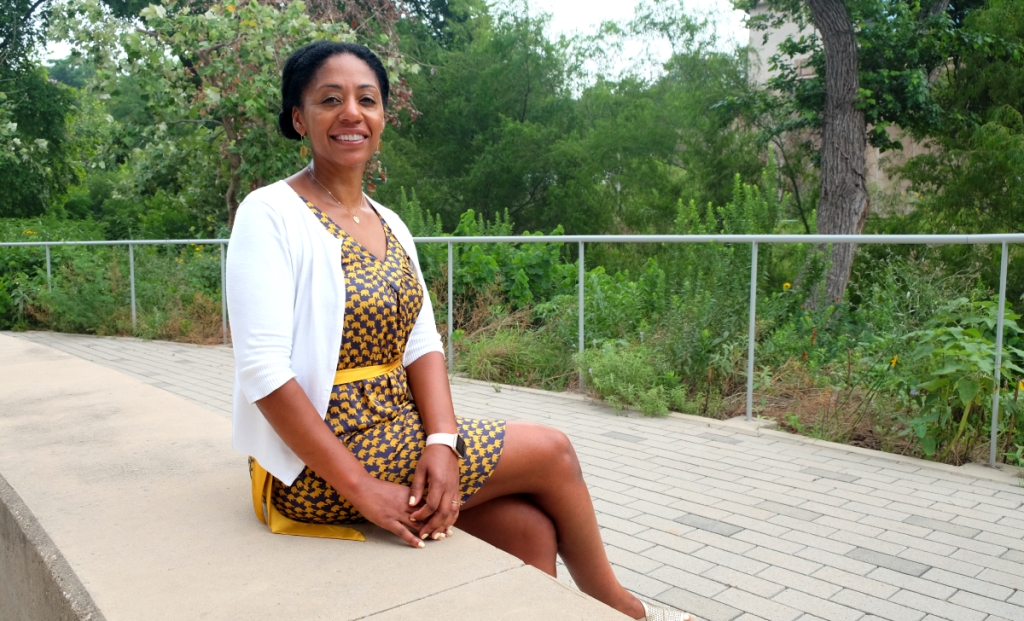
Enjoying a peaceful moment alongside the Waller Creek Greenbelt.
What advice do you have for others?
Be bold. Ever since I was a child, I loved marine mammals. I wrote numerous school reports on whales and dolphins and watched countless nature documentaries. When I graduated from college, I decided to buy a one-way ticket from Louisiana to Hawaii. I chose Hawaii because there are a lot of whales there in the winter, and I bought a one-way ticket to encourage me to make Hawaii my new home. A lot of people told me I was brave, bold, and daring. I did not think that at all at the time, I just knew I wanted to work with whales. That one-way ticket eventually led me to an amazing career on the ocean.
I became interested in public health while I was working on boats, which eventually led me to Austin. People would say to me, “Why would you want to go into public health? That’s so different from what you were doing before!” But I didn’t let that deter me, I was doing what I was interested in. I now get to work on both health and environmental projects, including the work I do as a Texas Master Naturalist and as a Travis Audubon Society board member.
So if there’s something you really want to do, do it.
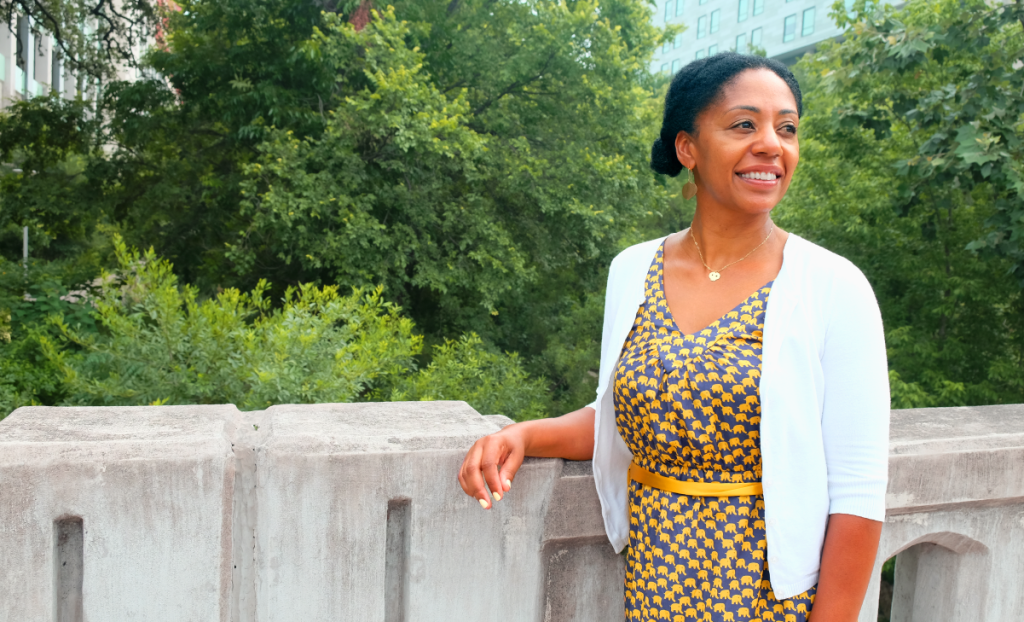
Join Nitakuwa in supporting Austin/Travis County’s food plan by exploring ways to get involved. To learn more about Austin's net-zero goal and the actions you can take to support a greener community, view the Austin Climate Equity Plan.
Share your Net-Zero contributions with us on Twitter or Facebook, and use #NetZeroHero. If you know a Net-Zero Hero (or heroes!) who should be recognized for their efforts, send your nomination to sustainability@austintexas.gov.
